
New words and Better Spellings
Developments in technology, procedures, and products sometimes require new ways of thinking and new ways of expression to communicate new or enhanced meanings. These new words help solve communication clutter by clarifying and simplifying existing definitions or introducing definitions for new concepts. Newords can be formed by combining parts of existing words (portmanteau), making an acronym, or inventing a new word (neologism). Newords should be creative: both novel/original and useful/practical. They should solve legitimate communication problems in the American English language and be so clear and such great words that they should be in the dictionary some day.
flush center
Refers to setting body copy with the left block of text set flush right and the right block set flush left. A center margin is created allowing info to be in better proximity.
Link to flush center for more information. (1990s)
Lawnscaper
I hired a guy to mow the lawn the lawn guy. Then it was a woman - Lawn Girl didn't sound good, Lawn lady?
The job is similar to a landscaper, but not quite that extensive, primarily just the lawn. Lawnscaper made sense. It doesn't convey gender or age. It's pretty specific and clear. (2020)
Turns out it is already in use. No info on when the term originated or was put into use.
macrap
When you do something because you can, not because you should.
Link to macrap for more information. (1990)
neurobics
Neurobics (neuron + aerobics) are stretching exercises to increase oxygen and give your brain's neurons more life by experiencing or participating in some new activity, place, or event.
Link to neurobics for more information. (1988)
OMS
Old Man Syndrome
Descriptor for the myriad changes happening as one ages.
A condition characterized by a set of associated symptoms and physical mannerisms.
OMS provides excuse for behavior that is not quite socially acceptable.
Symptoms of OMS
• Mismatched socks.
• Shirts with samples of meals stuck to the front.
• Bodily noise expulsions from mouth and butt.
• Creaks and aches in body parts.
• Standing up in phases.
• Losing one’s thoughts, even in the middle of a sentence.
Treatment
For the syndrome, there is no treatment. To minimize symptoms requires focus and caring. Most of those living with OMS rarely care about spending the time and energy needed to disguise the symptoms. Support groups are available as groups of men meeting for morning coffee and reviewing updated ailments and conditions.
(Coined on Feb 6, 2024)
More newords created by Jim Watson
• gladitude - glad + gratitude or glad + attitude. The condition of feeling grateful and happy about life or events in life. I was writing in my journal and listing all the things I am glad about in my life. I confused glad with gratitude and out came gladitude. It could even imply a glad attitude. That's okay, too. Gladitude. Stuff for which I am grateful and which makes me glad. July 20, 2007
Emily coined a neword in an email about my leaving New York City for Oklahoma - she referred to the home state as Oklahome. Nice.
I was writing in my journal and listing all the things I am glad about in my life. I confused glad with gratitude and out came gladitude. Not a bad word - gladitude. It could even imply a glad attitude. That's okay, too. Gladitude. Stuff for which I am grateful and which makes me glad.
• goalspirations - Setting goals that provide inspiration for growth. (1999)
• Googalit - Does this work as a neword? Many of us say it regularly. It has become part of our cultural vernacular. I just don't know if its necessary or any more efficient. (2012)
• informagination - The feed/retrieve process of design consists of the key words 'information' (input, data, and facts) and 'imagination' (ideas, images, and creative solutions). Design is the process of digesting information appropriate to a design problem and producing an imaginative solution.
Designers feed their minds with a variety of information. They see facts and figures in new ways and make new connections. When faced with a design problem, they use that information to help solve the problem. To retrieve the solution to the design problem, the designer thinks and creates with imagination.
All designers work from this same creative problem solving process: information in - imagination out. The process for a great designer combines these two concepts into a single purpose. Where does one end and the other begin? Design, then, is this process of informagination. (1987)
• logocrap - logo + crap. Many logos are nothing more than images or text arranged in some manner slightly above what a sight-impaired typesetter might do. If the mark is unclear, overly gimmicky, type-ugly, or in any other way just stupid looking, then it's crap. More info and examples. (August 13, 2013)
• logostrations - logo + illustration. Many logos are nothing more than cute illustrations accompanying a unique type treatment. These are characterized by firms that really do not need much consumer identity, they just need some mark that appears to convey professionalism. The public has come to expect a designy style of name in order to feel trust and confidence. So, are logostrations bad? Not necessarily. The graphic design industry should categorize identifying marks. Some are pure logos - they provide a clear identity for a company (Nike, golden arches, etc.) Others are there because a client felt he/she needed or just wanted a logo. Most designers will design a logo for a company whether its needed or not. We prostitute ourselves without accepting the greater consequence of how it impacts the future of the industry and how it keeps feeding the mentality that a business must have a 'designy' mark. (1998)
• magalog - Catalogs disguised as magazines to entice greater readership and trust in the contents. (1982)
• OmniSpirit - The encompassing name for the mystical spiritual connection humans have with each other and with a greater power.
Omni comes from Latin and means all or universal. Spirit comes from Middle English, from Latin spiritus, literally, breath, from spirare to blow or breathe (date:13th century) and means an animating or vital principle held to give life to physical organism; a supernatural being or essence; the immaterial intelligent or sentient part of a person; the activating or essential principle influencing a person 'acted in a spirit of helpfulness'; a special attitude or frame of mind 'the money-making spirit was for a time driven back' - J. A. Froude; the feeling, quality, or disposition characterizing something 'undertaken in a spirit of fun'.
• prospicuous - The opposite of conspicuous. To be conspicuous is to be noticed, to be obvious. Sometimes, however, we want to blend in with the crowd. We strive to be the opposite of conspicuous or prospicuous. "I snuck into the theater and wanted to be prospicuous."
• retailopolis - Retail + metropolis. A large urban town center anchored by shopping malls or centers, big box stores, office buildings, and nearby housing. These retailopolis areas are the new main Streets of America. They spur additional growth and development.
• spurchase - Spur-of-the-moment purchase. Making impulse buying decisions is becoming more common as stores and companies place product temptations near the register, on aisle endcaps, on websites, etc.
• stopping center - Shopping center + stopping. The collection of restaurants, gas stations, convenience stores, and truck stops clustered at Interstate Highway exits, especially in rural areas. (coined in 2007)
When I drive between Edmond OK and Manhattan NY, I pass numerous Interstate highway interchanges that are full of services for motorists - fuel, food, stores, repairs, motels, amusements, etc. Some of these interchanges are small communities that rely on the traffic stopping for their survival. They are a unique part of the American landscape - created and maintained for the convenience and pleasure of mobile Americans - tourists, business people, and truckers. We need a name for these places. Travel Plaza, Services, Service Center. How about 'Stopping Center'. From Shopping Center but expressing the unique attribute - we stop at these centers to interrupt our journey for a few minutes or overnight to take care of our needs and wants.
• symblem - Symbol + emblem. I'm not sure if this is a better word than either symbol or emblem, but it seems like it should be - it just sounds so right. So for now, it stays on the list.
• uglification - Purposefully transforming a place to make it less attractive or less appealing
• weblishing - web + publishing. The immediacy of this medium changes the way one can publish, and distribute information. (2000)

Samples of other newords
ad - shortened form of advertisement
actorvist - a politically involved actor
advertorial - advertising editorial
anticipointment - anticipation and disappointment (Brian Mays)
bafflegab - confusing or unintelligible speech (Wall Street Journal, 1967)
blamestorming - sitting around in a group, discussing why a deadline was missed or a project failed, and who was responsible
blandification - when too many Best Buy, McDonald's, Starbucks, etc. move into a nayborhood (Seth Pybas)
bit - binary digit
brunch - breakfast + lunch
bullsheet - an advertising supplement in the newspaper (Sniglet)
cheedle - the residue on one's fingertips after eating Cheetos (Sniglet)
chortle - chuckle + snort
coffice - a coffee shop used as an office (from South Korea)
comp - shortened form of comprehensive
dramedy - dramatic comedy
dymaxion - dynamic maximum tension (Buckminster Fuller)
emoticon - emotion icon
etarded - unable or unwilling to evolve with new electronic technology
generica - features of the American landscape that are exactly the same no matter where one is, such as fast food joints, strip malls, and subdivisions
glackett - the noisy ball inside a can of spray paint (Sniglet)
guesstimate - guess + estimate (Time magazine)
imagineers - imagination engineers (Disney)
infoganda - information + propaganda (The New York Times)
infomercial - inform + commercial
irritainment - entertainment and media spectacles that are annoying but you find yourself unable to stop watching them. Examples: J-Lo and Ben wedding (or not), Michael Jackson trial, OJ car chase
laser - light amplification by stimulated emission of radiation
Masipi - Mississippi
mepya - may I help you
modem - modulator + demodulator
motel - motor + hotel
mouse potato - the on-line, wired generation's answer to the couch potato
nurspice - a hospice nurse, coined by my brother Bill
Okloma - Oklahoma (Notice the next time you watch the news or weather or listen to friends in conversation)
op art - optical + art (Time magazine)
pixel - picture elements
remodelation - remodeling + renovation, seen on a sign posted on a storefront
scuba - self-contained underwater breathing apparatus
sheeple - submissive citizens, followers like sheep (Wall Street Journal, 1984)
simulcast - simultaneous + broadcast
sitcom - situation comedy
smog - smoke + fog (1905, San Francisco)
socialite - social + ite suffix (Time magazine)
spork - spoon + fork
stresshold - stress + threshold
televangelist - television + evangelist (Time magazine)
tump - turn it over + dump
umbrellactic - the protective sleeve of a compact umbrella (Sniglet)
velcro - velour + crochet
webcasting or netcasting - web or Internet + broadcasting
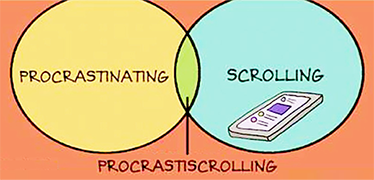

Some student-created newords
Ameriphernalia - All the 'patriotic' crap we see on cars and store windows
grouple - a group of people, as "There was a large grouple coming towards us with torches aflame." - Julie
hilarical - hilarious + hysterical, - Logan
nextime - submitted by one of Mitch Baker's third grade students
nifto - Mitch, the comic genius, coined the word nifto: from neato and nifty. According to Mitch, "Although they mean the same thing, I've decided to unite them. I tried 'neaty' first, but it didn't go over too well: a fat stripper asked me what I thought of her thighs. 'Neaty', I yelled over the disco music. She slapped me and left before I could pay her for the lap dance (my legs were crushed, so I was gonna shortchange her anyway)."
obnoxicon - Those annoying semitransparent icons that television networks feel compelled to place in the corner of the screen to remind you what you're watching.
trendscendent - will last over time and not be dated to one trend: from trend and transcendent. Developed during a discussion by Graphic Design 2 students, January 2008, about the word 'timeless' and how it didn't accurately convey one of the criteria that successful logos should meet.
advapparel - advertising apparel
blozero - below zero
chiver - chill + shiver
chizzly - chilly + drizzly
glooze - glue + ooze
graffaxi - unsolicited comments on a facsimile machine
greige - grey + beige, generic corporate office cubicle color
innostander - innocent bystander
jeat? - did you eat? squeat - let's go eat
nagagator - back seat map reader
Oklahome - Emily coined a neword in an email about my leaving New York City for Oklahoma - she referred to the home state as Oklahome.
salper - salt and pepper
sellebrity - athlete or media star in an ad or TV commercial
skoodle - sketch + doodle
soshno - social security number
sprainting - spray painting
Some fun new word definitions from the internet, maybe Reddit or Facebook:

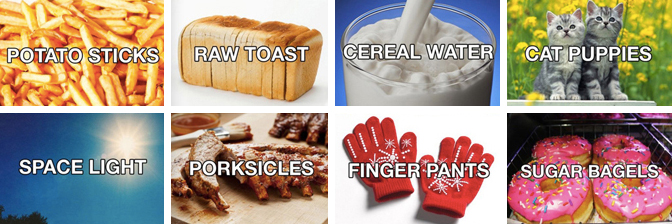
Cashtration - After buying a house, the subject is financially impotent for an indefinite period of time.
Ignoranus - A person who's both stupid and an asshole.
Intaxication: Euphoria at getting a tax refund, which lasts until you realize it was your money to start with.
Reintarnation - Coming back to life as a hillbilly.
Giraffiti - Vandalism spray-painted very, very high
Sarchasm - The gulf between the author of sarcastic wit and the person who doesn't get it.
Inoculatte - To take coffee intravenously when you are running late.
Decafalon - The grueling event of getting through the day consuming only things that are good for you.
Glibido - All talk and no action.
Arachnoleptic Fit - The frantic dance performed just after you've accidentally walked through a spider web.
Beelzebug - Satan in the form of a mosquito, that gets into your bedroom at three in the morning and cannot be cast out.
Alternate meanings for common words
Coffee - The person upon whom one coughs.
Flabbergasted - Appalled by discovering how much weight one has gained.
Abdicate - To give up all hope of ever having a flat stomach.
Esplanade - To attempt an explanation while drunk.
Negligent - Absentmindedly answering the door when wearing only a nightgown.
Lymph - To walk with a lisp.
Balderdash - A rapidly receding hairline.
Rectitude - The formal, dignified bearing adopted by proctologists.
Pokemon - A Rastafarian proctologist.
Oyster - A person who sprinkles his conversation with Yiddish idioms.
Better spellings
Language is constantly adapting, growing, and evolving. In America, there is no single language; there are regional dialects and ethnic applications. Humans have been creating new spellings and new words since we began writing. Medieval scribes combined letterforms into ligatures and shortened words out of necessity to fit a line or because they were just lazy and seeking an easier and faster way to write. Examples:
Good-bye from God be with ye, jeans from Genoa (Italy), til from 'til from until; beware from be aware; ad from ad. from advertisement.

Ghoti = fish
It really does spell 'fish' - here's how: f as in laugh, i as in women, and sh as in action = fish. This bizarre, yet accurate, spelling is attributed to George Bernard Shaw, the playwright.
Some examples
• How often do you hear people pronounce the R in February? Or the D in Wednesday? Or the P in Raspberry?
• Why do they, say, and weigh rhyme"
• Form and worm. Okay, then farm and warm.
• Look how many ways there are to pronounce 'ough': bought, cough, through, dough, bough, and tough.
Maybe it ought to just be: bawt, coff, thru, doe, bow (not bo), and tuff.
• Why doesn't Buick rhyme with quick ?
• Tomb = toom, Womb = woom, what does Bomb =
• While we're at it, how about rite for right (left and rite), wate for weight, and nite for night?
• Laugh = laff, but night is not nift.
• Laughter = laffter but add an s: slaughter = slawter. How silly.
• Is a tree pronounced like tree or like chree? Drink or jrink?
From Marilyn vos Savant, Parade magazine: Theodore Roosevelt (an admittedly poor speller) tried to reform spelling in 1906. He thot colour with the extra u was downright silly. He issued a directive to the government Printing Office to adopt 300 reformed spellings. Despite many notable proponents, Congress overturned the directive. Despite that, about this time, honour became honor and centre became center.
English is tough enough (tuff enuf?) to learn and remember as it is, lets work to improve its simplicity and ease of comprehension. Most of the awkward words have their unique spelling origins in old languages and archaic pronunciations. We no longer spell Ye Olde Shoppe or thee. Pronunciation, vocabulary, and idioms are always evolving. Why don't we just start spelling words the way they ought to be spelled?

Several years ago, I saw the name, Groj Sale somewhere and thought it was brilliant. The Garage Sale name is not quite accurate. I remember as a young kid seeing a sign in the naberhood and wondering why someone would sell their garage. Seemed weird. My mom explained it to me. So, a new name that represents the sound of the word garage makes some sense - a new word for the phrase that is already in our cultural vernacular. Garage means a car storage building, Groj Sale is a rummage/yard/garage sale.
probly
If you listen closely, most people just say 'probly' as in 'I'll probly go to the prom'.
From Gretchen McCulloch: Instead of enunciating the syllables in "probably," a slurred "probly" comes out instead. Why does this happen? It's efficient. English words tend to have one or two syllables that are stressed. One says PRO-bab-ly, not pro-BAB-ly or pro-bab-LY. The stressed syllables are more interesting and important to one's understanding of the word than the unstressed ones.
Over time, people reduce the contrast of the vowels in the unstressed syllables. It takes a little bit of extra effort to enunciate each syllable distinctly, and it's not worth the trouble if the listener knows what you mean anyway. If one says "probably" slowly and carefully, it'll be something like "pro-bab-lee." But if said faster, that middle unstressed vowel will get less distinct: "pro-buh-blee." No point in being extra careful: it's not like there are lots of other words that start with "praw" and end in "blee."
The omission of one of two consecutive identical syllables is so common in English and other languages that it has its own name: haplology.
Haplology is responsible for a variety of forms found in speech: interpretive (interpretative), England from Engla land (originally "land of the Angles"), pierced earrings from pierced-ear earrings), pacifist, from pacificist; and humbly, from humblely.
Wensday


Who says Wed Nes Day? Most of us shorten it to Wens Day (or Wins Day). We have already respelled the original name: Woden's Day. Woden, like some other day names, was a Teutonic God. I'm sure Lord Woden won't mind if we alter it a bit more.
In the mid-1980s, while teaching Graphic Design, I just started to spell Wensday the better way. Students sometimes were confused since I was picky about them spelling 'correctly' - it gave us an opening for a discussion about the evolution of language, idioms, and correct grammar. Wensday first appeared on this website when it went online in January of 2001.
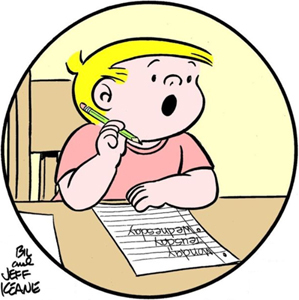
"Who put the extra D in Wednesday?"
Febuary
Why do we still spell February with an R that very few people pronounce? Lets just spell it the way we say it. Enuf said.
Arfritis
My dog, Dallas, has arthritis. I accidentally called it arfritis and it made sense,. Athritis in dogs (quite common) could be called arfritis. March 2006.
restraunt
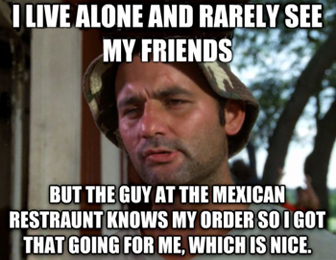
The word, restaurant, is just too awkward. Few of us say rest • au • rant. We often say restraunt, but I'm not yet sure how this should be spelled. Restrant is a bit too close to restraint (which we often do not have in restraunts). Restrawnt is a bit too clumsy and unfamiliar. Restraunt seems to be the most logical, clearly communicated, has some connection to the original word, is shorter, and removes the extra unneeded syllable. This is different from rest runt, which is a command to the smallest dog in the litter.
I plan to spell restaurant as restraunt from now on. Most certainly on Wensdays in Febuary. June 2010
naberhood or naborhood
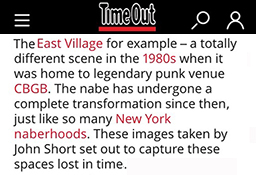
In the cumbersome word, neighborhood, it takes 4 letters - E I G H - to convey the A sound. Well, let's clarify and simplify: replace the eigh with a.
asprin

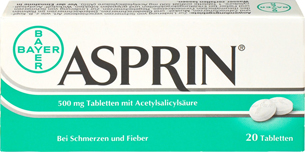
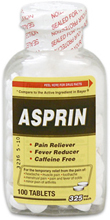
teeshirt makes more sense than T-shirt, t-shirt and others; also more logical to shorten it to tee (as we already do).
rasberry rasp berry?
tempature or tempacher (the way we say it).
breviation and breviated Abbreviation is just too long a word for its meaning. Brevity and brief start with br, so lets just drop the useless ab to leave breviation. Now the word is at least a bit breviated.
skedule The English pronounce schedule with an 'sh'. Americans say skedule. Let's spell it that way.
fasinating Not faskinating (fascinating). The redundant s & c letter sounds are unnecessary.
morgage Who says mort-gage?
tuff for tough
cloze - clothes
enuf - enough
rite - right: left and rite, rite and rong
wate - weight
nite for night
laff - laff, laffter for laughter
foto - photo, What's with this PH = F ?
wich for which, we don't spell sandwhich
sine - sign (si-g-n?) Although I'm not sure about design
sorta - sort of, as in it was sorta cold. I'm not sure what 'sort of cold' means, anyway.
kinda - kind of. See sorta.
Googalit Does this work as a neword? Many of us say it regularly. It has become part of our cultural vernacular. I just don't know if its necessary or any more efficient.
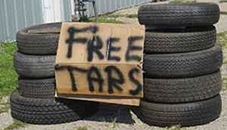
Me, myself and i - Why do we capitalize the word I ?
By Caroline Winter, 2008 Fulbright scholar, edited by Jim Watson
There's no grammatical reason for doing so, and oddly enough, the majuscule (upper case) I appears only in English.
Consider other languages:
• Hebrew, Arabic and Devanagari-Hindi: no capitalized letters
• Japanese: its possible to drop pronouns altogether
• French: all personal pronouns are in lowercase
• German: capitalize the formal form of you and even, occasionally, the informal form of you, but would never capitalize I.
• English: the solitary I towers above he, she, it and we. Even a gathering that includes God might not be addressed with a capitalized you.
The word 'capitalize' comes from 'capital,' meaning 'head,' and is associated with importance, material wealth, assets, and advantages. We have capital cities and capital ideas. We give capital punishment and accrue political, social and financial capital. And then there is capitalism, which is linked to private ownership, markets and investments.
The capital I first reared its dotless head in Old and Middle English.“Graphically, single letters are a problem," says Charles Bigelow, a type historian and designer of Lucida and Wingdings fonts.“They look like they broke off from a word or got lost or had some other accident." When“I" shrunk to a single letter, Bigelow explains,“one little letter had to represent an important word, but it was too wimpy, graphically speaking, to carry the semantic burden, so the scribes made it bigger, which means taller, which means equivalent to a capital."
The growing 'I' became prevalent in the 13th and 14th centuries, with a Geoffrey Chaucer manuscript of The Canterbury Tales among the first evidence of this grammatical shift. Initially, distinctions were made between graphic marks denoting an 'I' at the beginning of a sentence versus a midphrase first-person pronoun. Yet these variations eventually diminished, leaving us with our all-purpose capital 'I,' a change apparently made for simplicity's sake.
So what effect has capitalizing I but not you (or any other pronoun) had on English speakers? Perhaps our individualistic, workaholic society would be more rooted in community and quality and less focused on money and success if we each thought of ourselves as a small i with a sweet little dot. There have, of course, been plenty of rich and dominant cultures throughout history that have gotten by just fine without capitalizing the first-person pronoun or ever writing it down at all. Modern e-mail culture has shown that many English speakers dismiss all uses of capitalization. But take this a step further: i suggest that You try, as an experiment, to capitalize those whom You address while leaving yourselves in the lowercase. It may be a humbling experience. It was for me.
Fun trivia from the Internet
• No word in the English language rhymes with month, orange, silver, or purple (other than, of course, bunth, flornge, pilver, and slurple).
• 'Dreamt' is the only English word that ends in the letters 'mt'.
• There are only four words in the English language which end in 'dous': tremendous, horrendous, stupendous, and hazardous.
• The shortest common word that contains all 5 vowels: sequoia. The 2 words in the English language with all 5 vowels in order: abstemious and facetious. All 5 vowels plus Y: facetiously.
www.jamesrobertwatson.com/newords.html